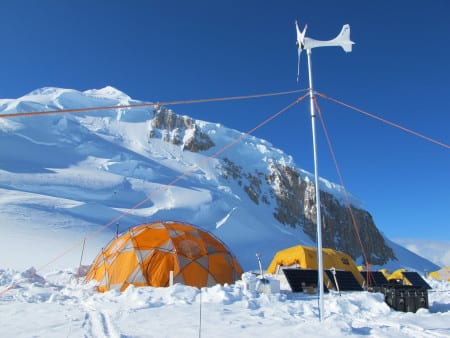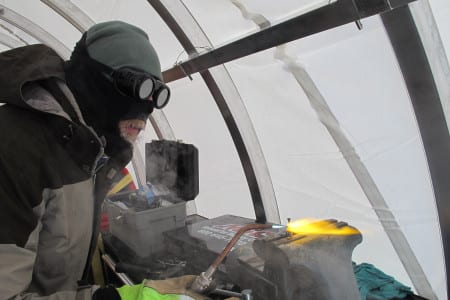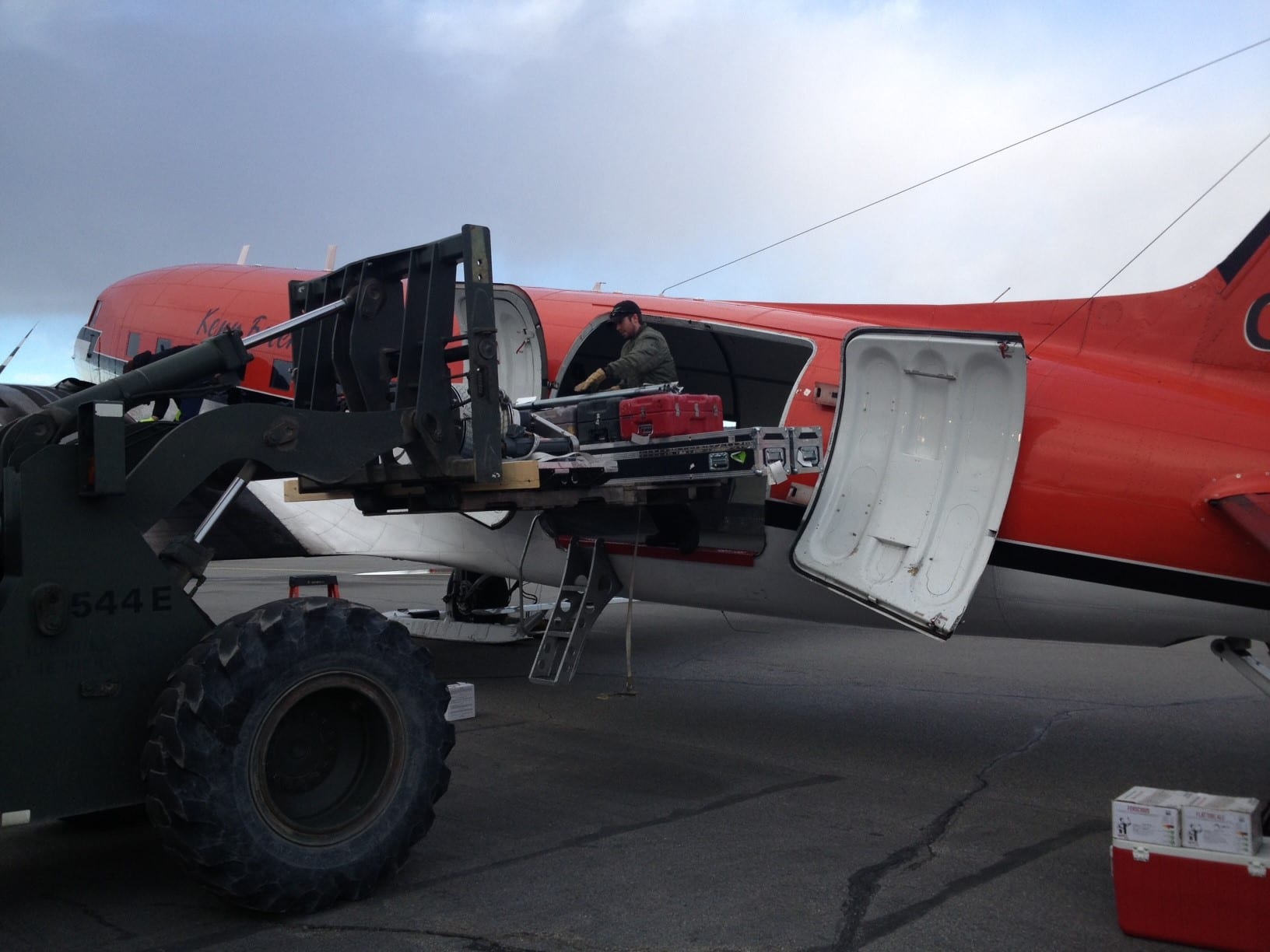Flying to remote locations escorted by National Guard pilots, setting up camp on an active volcano or maintaining scientific instruments on the highest point of Greenland’s ice sheet is just another day’s work for the staff of Polar Field Services. The Littleton, Colo.-based outfit provides logistical support to scientists who conduct research in the most extreme environments on earth: Alaska, Russia and the Arctic Ocean — to name a few.
The company’s services and equipment are set to cater to its clients’ extreme needs: from bear-country training to solar-powered generators to run technical equipment or camp setup on Mount Everest, PFS has it covered. These are service requests less-ordinary, perhaps, but the PFS team specializes in solving seemingly impossible challenges in the field.

This camp on Mount Hunter in Alaska’s Denali National Park and Preserve was home to scientists drilling ice cores in spring 2013. Photo: Mike Waszkiewicz
The New ‘Daily Grind’
Kip Rithner, communications manager at Polar Field Services, tells the story of a team of scientists that needed to collect ice core samples from Mount Hunter in Alaska’s Denali National Park. The catch? The samples were located 14,000 feet above sea level. Company employees hired a helicopter to establish a high-elevation camp inside the national park, then handled the logistics necessary to power the ice core drill and safely transport the samples to a lab in Denver (without melting), all while leaving the smallest possible environmental footprint.
“At heart, we are all problem solvers,” Rithner says about her colleagues. “Give us a problem, and we love nothing more than sitting down and figuring out how to get it done.”
Enterprising Problem Solvers
Resourcefulness is key in any field service situation, but is certainly heightened when the workplace is a remote glacier or mountain range in sub-zero temperatures.
A lack of reliable infrastructure in many locations where its employees work requires Polar Field Service team members to be quick on their feet. “One constant is that things are constantly changing,” Rithner says.
But improvising in extreme work climates isn’t the only time the team gets creative. Financial realities are another driver.

Mechanic Robin Davies shelters from temperatures falling below -50F to make repairs needed to complete a journey from Greenland’s coast to deliver fuel and oversized cargo to a research outpost. Photo: Pat Smith
The company’s clients are often government-funded scientists with small budgets. It’s expensive to fly people and supplies to remote areas of the world, so the team uses its ingenuity. The company reuses, borrows or modifies equipment whenever possible — and even taps local (or client) connections to, say, secure a National Guard plane on the cheap.
Safety First
While being resourceful to stay within budget is important, safety is paramount. Before any employees hit the icepack, the team analyzes every contingency to develop solutions and backup plans.
For a project on the Greenland ice sheet, that could include arranging air support via helicopters or lightweight planes, ensuring clients are equipped with suitable gear for extreme temperatures, providing wilderness training and securing required permits.
“Your coat doesn’t have to be the latest high-tech material. It just needs to fit, and you have to be able to wear layers under it,” Rithner says. “It won’t be fancy, but it will be safe, and it will work.”
Technology also plays a role. The company equips its field support teams with radios, satellite phones and a procedure for daily check-ins. GPS and other technologies have improved safety, allowing the company to track the expedition’s movements.
Beyond Field Service
Despite the difficult, potentially deadly, conditions, Rithner sees the immense value in the service and support her team provides. Soon, the company’s client roster could include organizations not readily associated with field service. The company says it has growing interest from media groups, adventurers and even authors requesting its services.
Whatever the future holds, Rithner says science will always be core to Polar Field Services’s mission: “We do the worrying so our clients can do their research.”


Share this: